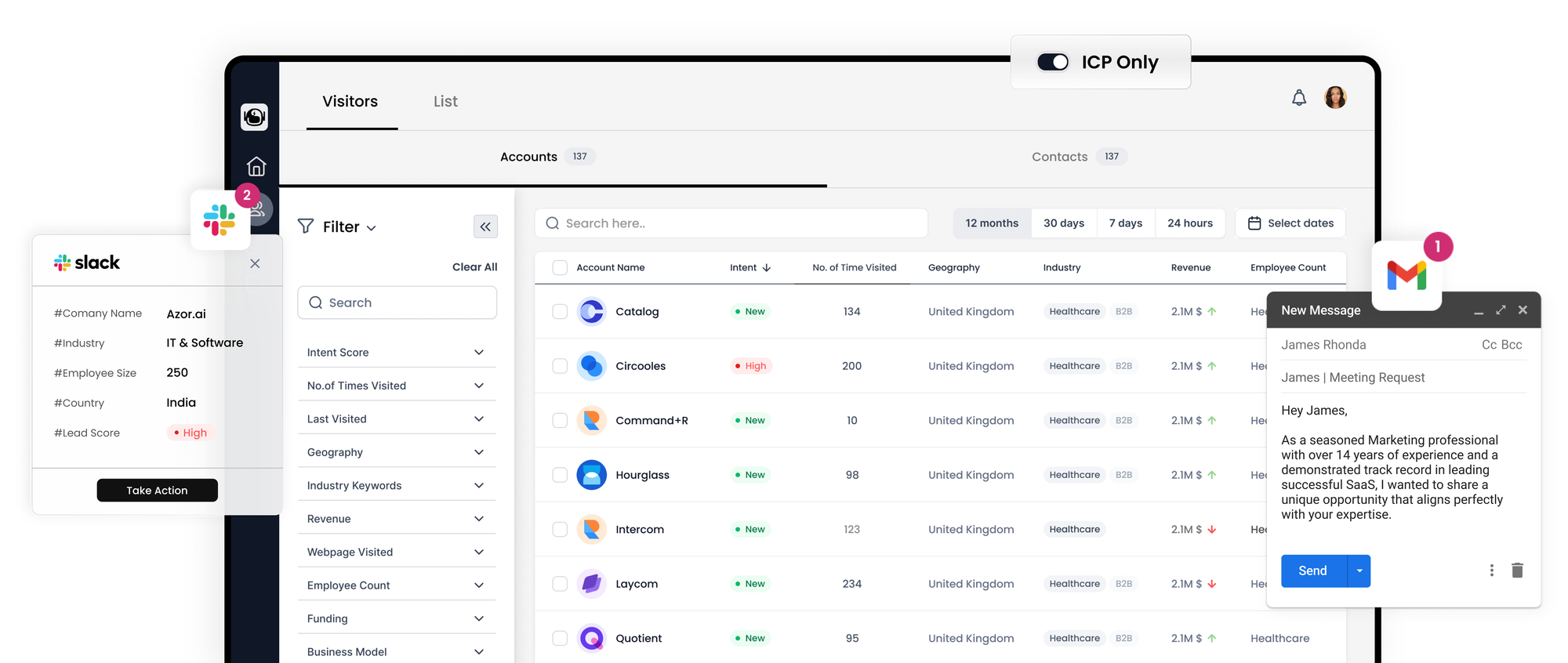B2B Marketing Automation: The Competitive Edge for Business Growth

By 2030, the marketing automation industry is projected to soar to a staggering $12.2 billion, according to ReportLinker. This remarkable growth trajectory highlights a crucial trend: businesses, particularly in the B2B sector, are rapidly adopting automation tools to gain a competitive edge.
If your company hasn't embraced marketing automation yet, it's high time to consider integrating this technology. It's not just a luxury—it's becoming a necessity for staying competitive in an ever-evolving digital landscape.

Understanding Marketing Automation
At its core, marketing automation leverages software to manage repetitive marketing tasks efficiently. This encompasses a spectrum of activities, from email marketing to social media posting and engaging in customer inquiries.
Beyond automating tasks, marketing automation streamlines workflows, bringing together marketing, sales, and customer service teams on a unified platform. This coordination ensures a seamless and consistent campaign management approach.
For instance, consider HubSpot's automated workflows. When a user requests a quote by filling out a form, this action triggers a series of automated responses—from sending welcome emails to notifying team members for further engagement—facilitating a smooth and responsive user journey.
The Role of Marketing Automation in B2B Businesses
In B2B contexts, marketing automation transcends traditional boundaries by fostering personalized customer journeys. This technology empowers businesses to deliver timely, relevant content to leads at critical decision-making junctures, enhancing lead nurturing and conversion rates.
Moreover, marketing automation is not limited to emails. It's a holistic approach that can include content management, social media marketing, SMS campaigns, and more—all working synergistically to capture and convert leads.
Top 10 Advantages of Marketing Automation for B2B Enterprises
Here are ten compelling reasons why marketing automation can transform your B2B marketing efforts:
1. Time Efficiency
By automating mundane tasks, marketing automation frees up your team's time, enabling them to focus on strategic initiatives that drive revenue growth.
2. Cost Reduction
Automating your marketing can lead to significant cost savings—up to 12.2%, as stats suggest—by optimizing resource allocation and enhancing team productivity.
3. Enhanced Lead Quality
Automation tools offer deep insights into consumer behavior, enabling you to generate high-quality leads that are more likely to convert.
4. Streamlined Lead Nurturing
With automation, you can engage leads with consistent, informative content, guiding them through the sales funnel with minimal manual intervention.
5. Refined Lead Scoring
Automation allows you to score leads based on their actions and engagement, ensuring sales efforts are concentrated on the most promising prospects.
6. Marketing and Sales Alignment
A shared automation platform ensures that marketing and sales teams are working towards common goals, maintaining a cohesive strategy.
7. Personalization at Scale
Deliver tailored experiences across the customer journey by leveraging automation to segment audiences and customize messaging based on user behavior and preferences.
8. Data-Driven Decision Making
Real-time analytics and reporting tools within automation platforms offer actionable insights, enabling data-driven strategies for improved campaign performance.
9. Boosted Conversion and Sales
By optimizing lead generation and nurturing processes, marketing automation directly contributes to increased conversions and sales.
10. Comprehensive Customer Journey Insights
Integrating marketing automation with CRM systems provides a 360-degree view of the customer journey, facilitating personalized engagement and informed interactions.
Implementing Marketing Automation: A Strategic Approach
Adopting marketing automation requires a thoughtful approach:
Start with identifying tasks ripe for automation.
Select a platform that integrates seamlessly with your existing tech stack.
Define clear objectives and KPIs to measure automation's impact.
Train your team to leverage the full potential of automation tools.
Continuously monitor performance and optimize for better outcomes.
Embracing marketing automation is more than just adopting new software—it's about reshaping your marketing to be more efficient, effective, and aligned with your business goals. As the industry continues to grow, now is the perfect time to invest in automation and secure your place in the competitive B2B marketplace.
